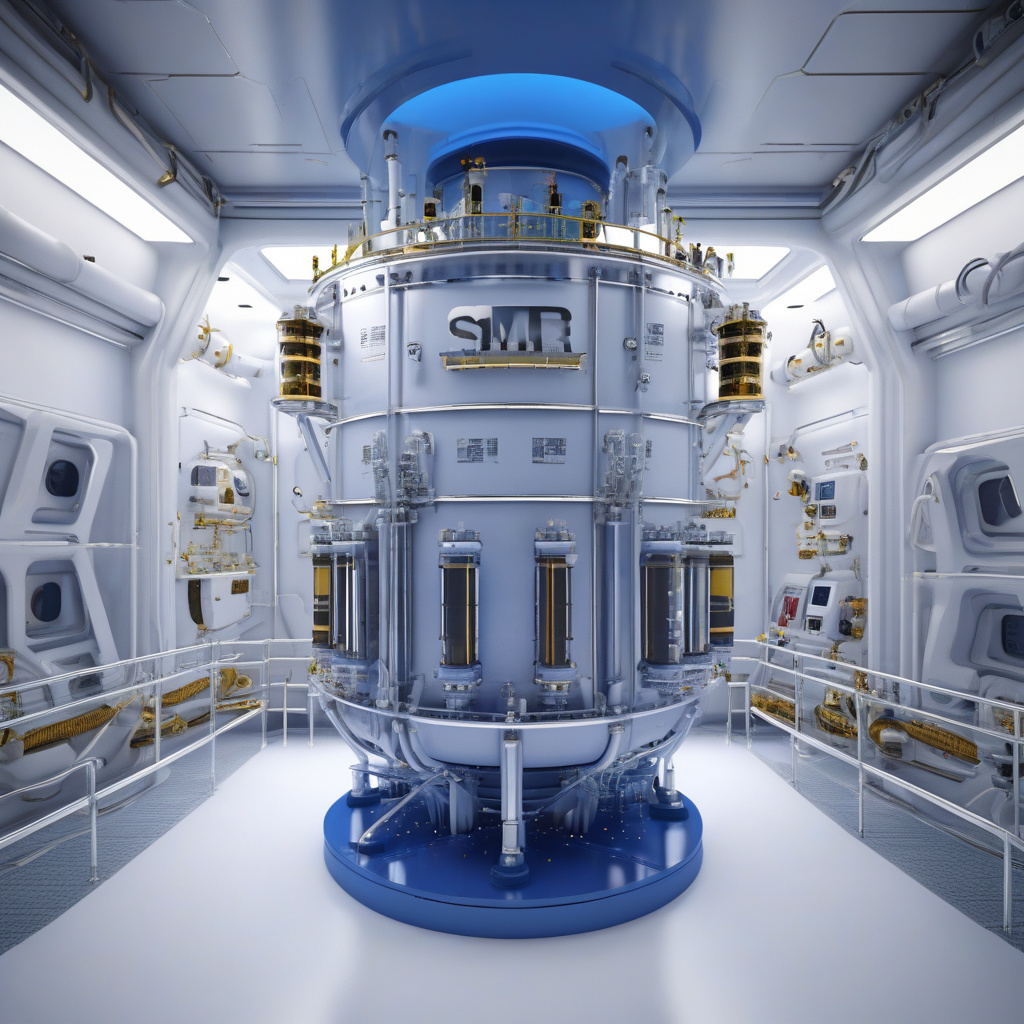Next-Gen Small Modular Reactor Design for Ships Unveiled, Boosting Decarbonization Efforts
Three European firms have unveiled the design of the next-generation sustainable nuclear reactor for maritime applications. This innovative small modular reactor (SMR) is set to revolutionize the way ships operate, offering a promising solution to decarbonize the maritime industry.
The push for sustainable energy sources has never been more urgent, especially in the maritime sector, which is responsible for a significant portion of global carbon emissions. Traditional marine diesel engines are notorious for their environmental impact, emitting harmful greenhouse gases and contributing to climate change. In this context, the introduction of SMRs tailored for ships marks a significant step towards a greener and more sustainable future.
The newly revealed SMR design is compact, efficient, and highly versatile, making it an ideal power source for a wide range of vessels, from cargo ships to cruise liners. Its modular nature allows for easy installation and scalability, catering to the diverse needs of different ship types. By harnessing nuclear energy, these reactors can provide a reliable and continuous power supply, enabling longer journeys without the need for frequent refueling stops.
One of the key advantages of SMRs for ships is their minimal environmental footprint. Unlike traditional diesel engines, nuclear reactors do not produce carbon emissions during operation, making them a clean energy alternative for the maritime industry. By adopting this advanced technology, ship operators can significantly reduce their carbon footprint and comply with increasingly stringent emissions regulations.
Moreover, the compact size of SMRs enables them to be integrated into existing ship designs with minimal retrofitting requirements. This means that both new vessels and existing fleets can benefit from the advantages of nuclear-powered propulsion systems. In addition to reducing emissions, SMRs offer cost savings in the long run by minimizing fuel consumption and maintenance expenses.
The unveiling of the next-gen SMR design for ships represents a major milestone in the ongoing efforts to decarbonize the maritime sector. By embracing sustainable nuclear energy solutions, the industry can move closer to achieving its climate goals and contribute to global decarbonization initiatives. With the demand for clean energy sources on the rise, SMRs offer a promising pathway towards a more sustainable future for maritime transportation.
In conclusion, the introduction of next-generation small modular reactors for ships heralds a new era of sustainable and efficient propulsion systems. By harnessing the power of nuclear energy, the maritime industry can reduce its environmental impact, cut emissions, and pave the way for a greener future. As global decarbonization efforts accelerate, innovative solutions like SMRs play a crucial role in shaping a more sustainable world.
#SMR #Decarbonization #MaritimeIndustry #NuclearEnergy #Sustainability












